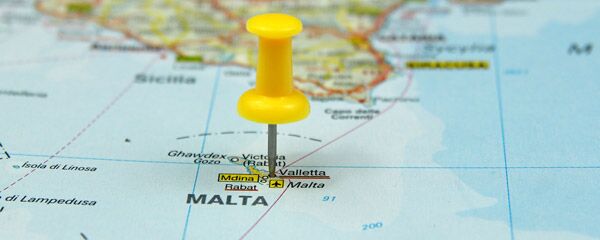UPDATE (November 15): On November 12, the Maltese Parliament approved the proposed Individual Investor Program, with all members of the opposition party voting against it.
The legislation remains highly controversial in Malta, and the opposition Nationalist Party remains committed to invalidating citizenships granted under it. Court challenges are also planned.
Bottom line: A Maltese passport is a terrific travel document. But the risks the article notes haven't changed.
If you follow the offshore scene, you may have heard about the proposed new economic citizenship program in Malta, an island nation in the center of the Mediterranean.
The proposal would create an "Individual Investor Program" (IIP) granting citizenship and a passport to foreigners who make a contribution of €650,000 or more to the government. Applicants would also need to clear what Prime Minister Joseph Muscat says will be "the most rigorous due diligence of any program worldwide."
You would also be able to include your spouse, dependent children under the age of 26, and even dependent parents for additional fees. A non-refundable deposit of €10,000 would be payable in advance.
If enacted, this law would make Malta an instant contender for one of the world’s most attractive economic citizenship programs. Certainly, it can serve as an acceptable alternative to, say, a US passport.
A Maltese passport gives you visa-free access to nearly 170 countries. Since Malta is an EU member, its passport also gives you the right to live and work in any other EU member country. You can even take up residence in the non-EU nations of Switzerland, Norway, Iceland, and Liechtenstein.
Admittedly, it's expensive. Converted to US dollars, €650,000 is almost $900,000. With legal and due diligence fees, the total cost for a single applicant is liable to exceed $1 million.
Compared to other methods of getting a passport from an EU country, though, the cost seems reasonable. It's a lot less than the estimated €2 million cost of acquiring citizenship in Austria—a passport of roughly comparable quality to that of Malta. It’s also less than the minimum €3 million investment required for citizenship and a passport from neighboring Cyprus.
Outside the EU, a Maltese passport is unquestionably superior to those issued by the Commonwealth of Dominica and the Federation of St. Kitts & Nevis, although it’s much more expensive. The Maltese passport's main difference from St. Kitts & Nevis is that it gives you the right to reside permanently and work in any EU country, and to visit the USA without a visa for up to 90 days at a time. If these aren't important to you, St. Kitts & Nevis is a better deal at approximately one-third the price.
Now for the risks…
Keep in mind the law hasn't yet been enacted, and Mr. Muscat and his governing Labor Party face plenty of resistance to the idea.
Opposition leader Simon Busuttil even announced that his Nationalist Party would invalidate the citizenship of successful IIP applicants when it returns to power. Of course, Muscat's Labor Party says this can’t happen except in very special cases.
In response, the Nationalists retort that any law passed by one parliament can be invalidated by a later parliament—including one awarding citizenship by investment.
Thus, Busuttil's threat must be taken seriously. After all, this has happened before.
After Grenada ended its economic citizenship program in 2001, the opposition party refused to renew the passports of at least some individuals who had acquired citizenship through their own buy-a-passport program.
Despite this threat, it's likely the IIP proposal will eventually become law once politicians on both sides realize how much money is at stake.
Just don't forget about the risks. While the current oppositional stance is likely part of the political show, history shows that economic citizenship reversals, cancellations, and passport non-renewals do happen.
And, if that were to happen, those who put up the money would be out of luck.
Mark Nestmann
Nestmann.com












